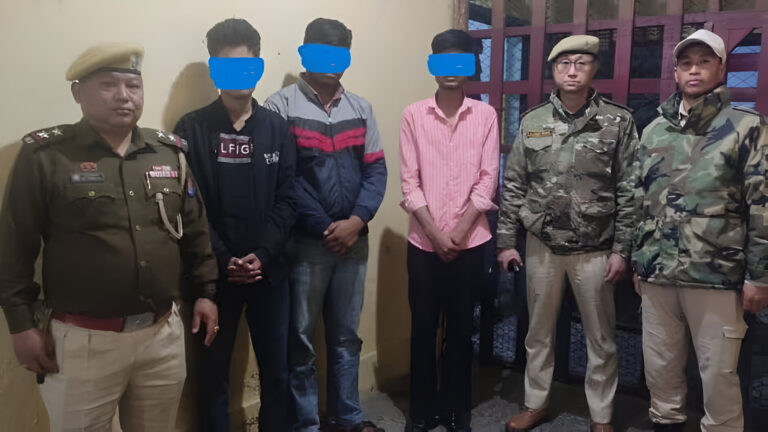Manipur Police Bust Fake GPay App Fraud Ring – Two Con Artists Nabbed in Smart Crackdown
News Summary
In a smart and swift operation, the Manipur Police cracked down on a digital fraud racket that involved the use of fake Google Pay (GPay) apps to trick local shopkeepers and service providers. Two individuals were arrested in connection with the case. The scammers reportedly used these spoofed apps to simulate successful transactions, duping unsuspecting victims out of money during regular purchases. The bust highlights the growing threat of cyber fraud in rural and urban Manipur, and authorities are now encouraging more public awareness to prevent such scams.
How It All Went Down: Inside the Police Operation
Picture this: small shops and vendors in Manipur doing their day-to-day business, accepting payments via GPay, unaware that the money never actually hits their bank accounts. The scammers used a lookalike GPay app, which mimicked the interface and even showed a fake confirmation screen. Slick, right?
But not slick enough.
Thanks to complaints from sharp-eyed victims and swift coordination by cyber sleuths, the police were able to track the fraudsters’ digital footprints. Within days, two suspects were arrested. Their phones were seized, and inside were the fake apps, records of transactions, and chat histories showing how the frauds were carried out.
Real Numbers, Real Damage
Although only two people were arrested this time, don’t let that fool you — the scope is wider than it looks. According to police estimates, the duo may have cheated dozens of vendors across multiple towns, ranging from Imphal to small markets like Thoubal and Moreh.
Even if each victim lost just ₹500 to ₹2,000 per incident, the total sum quickly adds up. Some reports suggest the scammers made well over ₹1 lakh before getting caught.
And let’s not forget — not everyone reports these crimes. Many victims feel embarrassed or fear police procedures, which means the actual number of cases may be much higher.
What the Police Are Saying
The Manipur Police deserve a hat tip for this one. According to officials, the case was cracked thanks to community reports, CCTV evidence, and smart cyber forensics.
Authorities now want to push public awareness campaigns — especially for shopkeepers, autorickshaw drivers, tea stall owners, and delivery agents who often use GPay and other UPI platforms casually.
A senior police officer remarked, “This is a wake-up call. Everyone needs to double-check payment confirmations from their official UPI app or bank SMS, not just rely on what’s shown on a customer’s screen.”
And honestly? That’s solid advice.
FAQs
1. How do I know if someone is using a fake GPay app?
Look closely at the interface. If the app looks off, if it opens too fast, or doesn’t show a real-time message history, it’s likely fake. Also, real GPay sends a confirmation SMS or notification.
2. What should I do if I get scammed by a fake payment app?
File an FIR with local police and report the incident to the Cyber Crime Helpline (Dial 1930 in India). Also inform your bank immediately.
3. Are fake GPay apps available on the Play Store?
No, they’re usually shared as APK files and installed manually. Always download apps from trusted sources like Google Play.
4. Can these fraud apps access my personal data too?
Some can! That’s why installing APKs from untrusted sources is risky. They can contain malware or spyware.
5. Is Manipur the only state seeing these scams?
Not at all. This is a nationwide issue, but regions with low digital literacy are more vulnerable to such tricks.




